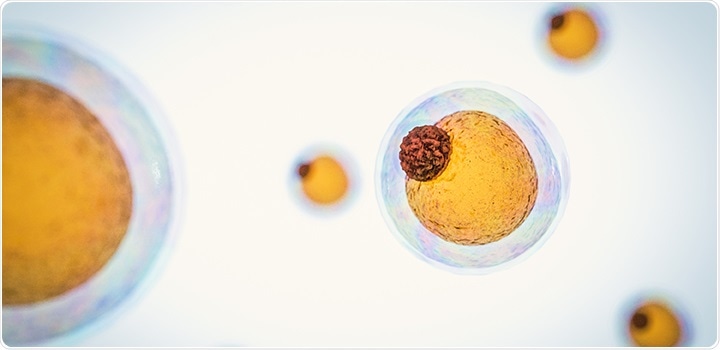Reviewed by Danielle Ellis, B.Sc.Dec 9 2021
A recent study carried out by the University of East Anglia and Quadram Institute shows how immune cells utilize the body’s fat stores to combat infection.

Image Credit: University of East Anglia.
The study could help generate novel approaches to treat individuals with bacterial infections. The research was published on December 8th, 2021 in the Nature Communications journal.
The scientist states that their research could help treat infections in older and vulnerable individuals in the future.
The researchers analyzed Salmonella—a bacterial infection causing vomiting, diarrhea, fever, abdominal pain, and sepsis.
The researchers from UEA associated with the Quadram Institute and co-workers at the Earlham Institute monitored the movement and consumption of fatty acid in live stem cells.
They also examined the immune response to Salmonella bacterial infection, by investigating liver damage.
The scientist unraveled the response of blood stem cells to infection, by obtaining high-energy fatty acids from the body’s fat stores.
The scientist discovered that in the bone marrow—the place where blood stem cells reside—infection signals induce adipocytes to discharge their fat stores as fatty acids into the blood.
They also found that these high-energy fatty acids are later imbibed by blood stem cells, efficiently feeding the stem cells and allowing them to produce numerous Salmonella-fighting white blood cells.
The scientists also revealed the process by which the fatty acids are transferred and debated the probable effect this new understanding could have on future treatment of infection.
Our results provide insight into how the blood and immune system is able to respond to infection. Fighting infection takes a lot of energy and fat stores are huge energy deposits, which provide the fuel for the blood stem cells to power up the immune response.”
Dr Stuart Rushworth, Norwich Medical School, University of East Anglia
Dr Rushworth added, “Working out the mechanism through which this ‘fuel boost’ works gives us new ideas on how to strengthen the body's fight against infection in the future.”
Our results allow us to understand how our immune system uses fat to fuel the response to infection. Defining these mechanisms will enable us to develop new therapeutics to treat infections in the liver.”
Dr Naiara Beraza, Quadram Institute
“In the future, I hope our findings will help improve treatment for vulnerable and older people with infections, by strengthening their immune response,” states Dr Rushworth.
With antibiotic resistance being such a present and widespread challenge for society, there is an urgent need to explore novel ways like this to help the body’s immune system to fight infection.”
Dr Stuart Rushworth, Norwich Medical School, University of East Anglia
Source:
Journal reference:
Mistry, J. J., et al. (2021) Free fatty-acid transport via CD36 drives β-oxidation-mediated hematopoietic stem cell response to infection. Nature Communications. doi.org/10.1038/s41467-021-27460-9.